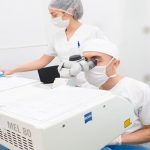Recovering from plastic surgery is a critical phase that demands careful attention and adherence to specific post-operative care guidelines. The journey to your desired aesthetic outcome doesn’t end with the surgery; it extends through the recovery period, which is pivotal for ensuring successful results. This article aims to guide you through essential steps for a smooth and effective recovery process, highlighting the importance of following your surgeon’s instructions and taking appropriate measures to facilitate healing.
- Understanding Post-Surgery Care: Post-surgery care is a tailored plan provided by your surgeon, designed to ensure optimal healing and results. It typically includes instructions on wound care, medication management, activity restrictions, and signs of complications to watch for. Adhering to these guidelines is non-negotiable, as they are crucial for preventing infections, reducing scarring, and achieving the best possible outcome. Understanding and following your post-operative care plan is the first and most important step in your recovery journey.
- Managing Pain and Discomfort: Pain and discomfort are common after plastic surgery, and managing them effectively is key to a comfortable recovery. Your surgeon will likely prescribe pain medication, which should be taken as directed. For specific procedures, like biopolimeros removal, pain management might require particular attention due to the nature of the surgery. It’s important to communicate with your healthcare provider about your pain levels so they can adjust your plan as needed. Additionally, simple measures like keeping the surgical area elevated, applying cold compresses, and resting can significantly alleviate discomfort.
- Importance of Rest and Sleep: Rest and sleep are vital components of the healing process. Your body repairs and rejuvenates itself during sleep, making it essential for a speedy recovery. Create a comfortable, restful environment in your home, free from disturbances. If necessary, adjust your sleeping position to avoid putting pressure on the surgical area. For instance, after facial surgery, sleeping with your head elevated can reduce swelling. Ensuring you get adequate sleep and rest cannot be overstated in its importance for your recovery.
- Nutrition for Healing: Proper nutrition plays a significant role in healing after plastic surgery. A balanced diet rich in vitamins, minerals, and proteins can speed up the healing process, reduce swelling, and enhance your overall health. Focus on consuming lean proteins, whole grains, fruits, vegetables, and healthy fats. Foods rich in vitamin C and zinc, in particular, can aid in wound healing and boost the immune system. Avoid processed foods, excessive sugar, and salt, as they can exacerbate inflammation and hinder your recovery.
- Hydration is Key: Staying hydrated is crucial following plastic surgery. Adequate hydration aids in flushing toxins from the body, reduces swelling, and promotes better healing. Aim to drink plenty of water throughout the day. Avoid alcohol and caffeine, as they can lead to dehydration. Including hydrating foods in your diet, such as watermelon, cucumbers, and strawberries, can also contribute to your overall fluid intake. Remember, well-hydrated skin is more resilient and can recover more effectively from surgical procedures.
- Wound Care and Hygiene: Proper wound care is essential to prevent infection and ensure smooth healing. Follow your surgeon’s instructions on how to clean and care for your surgical site. This may include gently cleaning with prescribed solutions, changing dressings, and applying topical medications. It’s crucial to keep the area clean and dry. Avoid using harsh soaps or lotions that are not recommended by your surgeon. Good hygiene practices not only expedite the healing process but also minimize the risk of complications.
- Avoiding Certain Activities: During recovery, it’s important to avoid certain activities that can strain your surgical site or disrupt healing. This includes heavy lifting, vigorous exercise, and other strenuous activities. Your surgeon will advise you on when it’s safe to resume normal activities. It’s also important to avoid exposure to direct sunlight on the surgical area, as UV rays can worsen scarring. Adhering to these restrictions, although challenging, is crucial for a successful recovery.
- Monitoring for Complications: Stay alert for potential signs of complications, including significant swelling, redness, pain, or any discharge at the site of the surgery. Additionally, if you experience a fever or any other atypical symptoms, seek medical attention promptly. Detecting these complications early can greatly impact your recovery positively. Consistently check the area of your surgery following your surgeon’s recommendations, and make sure to reach out to your healthcare provider with any worries or questions you might have.
- Follow-Up Appointments: Attending follow-up appointments is a critical part of your recovery process. These appointments allow your surgeon to monitor your healing, address any concerns, and provide further care instructions. They are also an opportunity for you to ask questions and get reassurance about your recovery progress. Ensure you keep all scheduled appointments and follow your surgeon’s advice closely.
- Emotional and Mental Health: Recovering from plastic surgery isn’t just physical; it also involves your emotional and mental well-being. It’s normal to feel a range of emotions post-surgery, including anxiety or frustration during the healing process. Be patient with yourself and allow time to adjust to the changes in your body. If you’re struggling, consider speaking to a counselor or joining a support group. Taking care of your mental health is as important as physical healing.
- Gradual Return to Daily Routine: Resuming your daily routine after plastic surgery should be a gradual process. It’s crucial to reintegrate activities slowly to avoid straining your body. Start with light tasks and gradually increase your activity level based on your comfort and surgeon’s advice. Listen to your body’s signals and don’t rush the process. This careful approach ensures you don’t compromise your healing and allows your body to adjust to the changes without undue stress, leading to a smoother and more effective recovery.
Conclusion: Recovering from plastic surgery requires a comprehensive approach that encompasses diligent wound care, avoiding certain activities, monitoring for complications, attending follow-up appointments, and taking care of your emotional and mental health. Each of these steps plays a vital role in ensuring a smooth and effective recovery. Remember, patience and adherence to your surgeon’s instructions are key. By taking these steps, you can look forward to enjoying the results of your surgery and moving forward with confidence and satisfaction.





